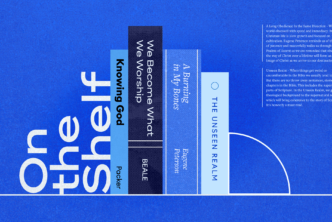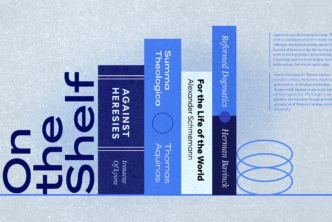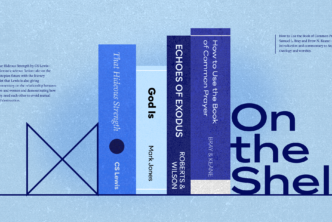This week we are celebrating the 501-year anniversary of the Reformation and featuring Reformation excerpts and reflections on the blog.
In this post, Dr. Mark Ward explains why publishing God’s Word was such a source of controversy in the Reformation era.
Maybe you’ve heard the story before: prior to the Reformation, the Roman Catholic Church forbade the translation of Scripture into common languages.
Now, Protestants had plenty to protest in this era, but it simply isn’t true that vernacular translation was totally forbidden. But the Roman Church did forbid it in some places at some times—and England, 1408, was one of them.
Why?
Do vernacular translations lead to confusion?
After Wycliffe translated the Latin Vulgate into English, the 1408 Constitutions of Oxford did indeed ban and even burn his work. (For good measure, the authorities also exhumed his body and burned his bones.) Records remain of Catholic arguments against Wycliffe and his followers, the “Lollards.” Catholic leaders felt that laypeople reading English Bibles would only cause confusion. Widespread familiarity with God’s words would lead to irreverence, the argument went, and it wasn’t really possible to translate the Bible with full accuracy into English anyway.
To contemporary Protestants, this way of thinking will seem foreign. Even modern Catholics may find it confounding; today, the Catholic church supports vernacular Bible translation.
But imagine you’re part of a church in a nation which has never had vernacular Bibles, just a few portions of various books available sometimes and in some places. Imagine English is not the dominant international language of trade, entertainment, and mass media that it is today. Imagine most people can’t read, that the language of educated people is Latin, and that Latin also happens to be the accepted language of the Bible—and has been for a thousand years.
Vernacular translation didn’t seem worth the risk to the health of society. Plus, English was a socially stigmatized language, like backwoods twangy English in the U.S. is today. One cleric from the pre-Reformation era wrote, “How . . . the properties of the [Greek] language can be preserved in the English tongue, or any other barbarous tongue, which is by no means governed by rules of grammar, I fail to see.”
According to Margaret Deanesly, many church leaders actually quoted Matthew 7:6 when confronted with the idea of vernacular Bibles: Neque mittatis margaritas vestras ante porcos—“Don’t cast your pearls before swine.”
And I know how they feel. Sometimes when I see what people do with the Bible, particularly on the internet, I get frustrated. Not everything professing Christians do with the Bible is good.
Hearing—and understanding—the voice of our shepherd
But Christians are not swine; they’re sheep. Sheep must be permitted to hear the voice of Christ in a language they can understand so that they can recognize his voice and follow him (John 10; 1 Cor 14:9–11). Reformation Christians have decided, because of the Bible’s own teaching, that the benefits of giving the people the Bible outweigh the risks.
And those benefits are precious: Christ himself is one of them. As John Wycliffe and his followers argued at the turn of the fifteenth century, and as later Reformers such as Luther and Calvin and Tyndale explained in greater detail, every person needs to relate to Christ individually. There is only one mediator between God and man, and it’s Christ (1 Tim 2:5). Where else do we hear his words but in Scripture?
Early Christians translated the Bible, or significant portions, into eight major languages, including Latin, Gothic, and Armenian. But there was a many-century drought in which the vast majority of Christians went without the Bible in their respective tongues. The Reformation launched a new era of Bible translation for which all sheep everywhere should be grateful.
Read about how we got our Bibles back in the Reformation 500 timeline.
***





